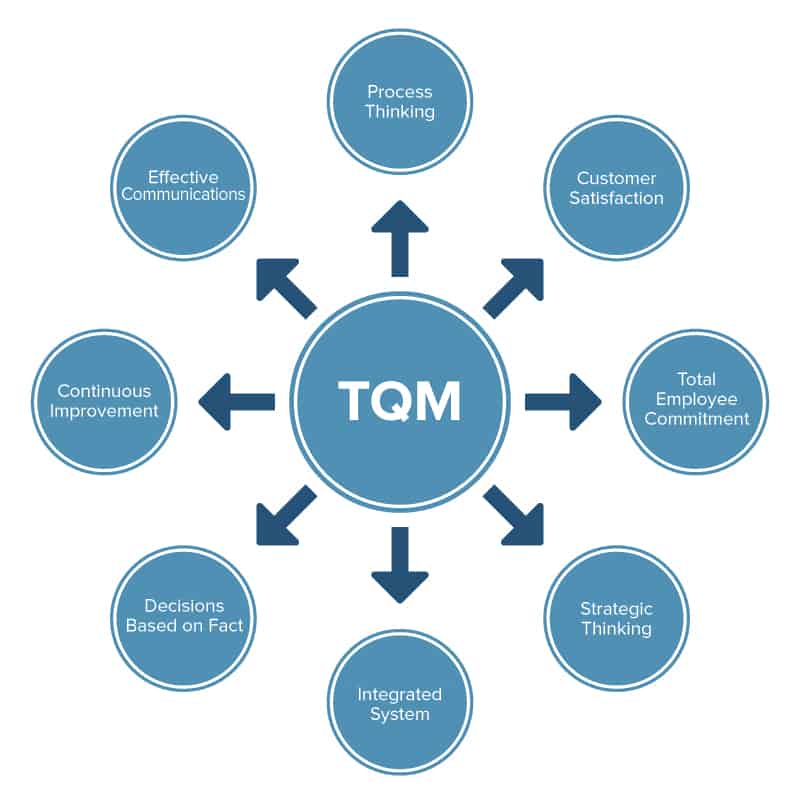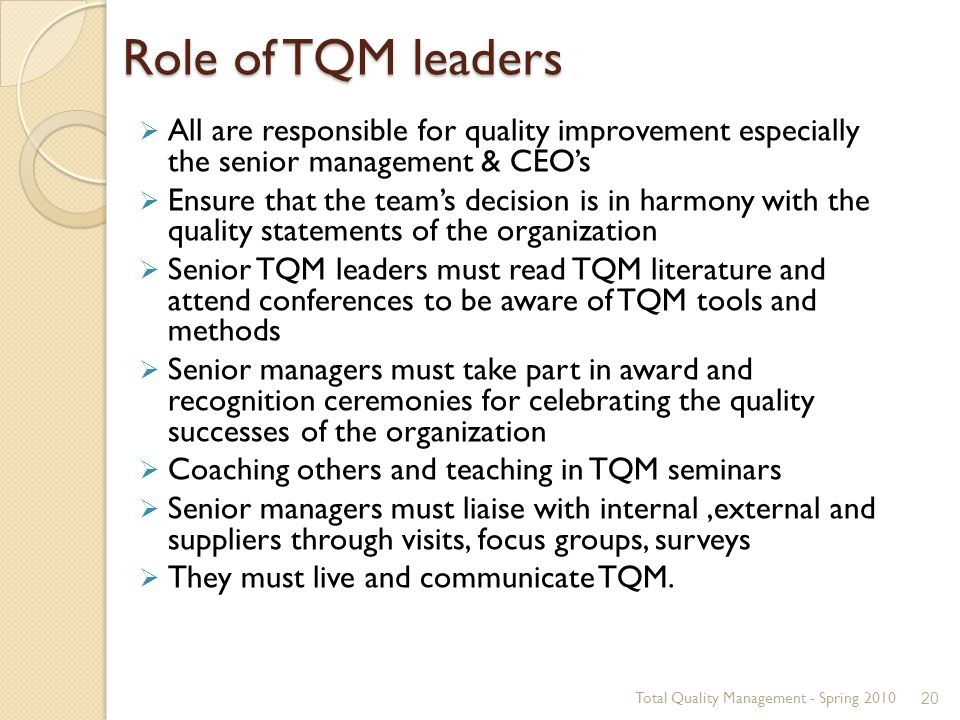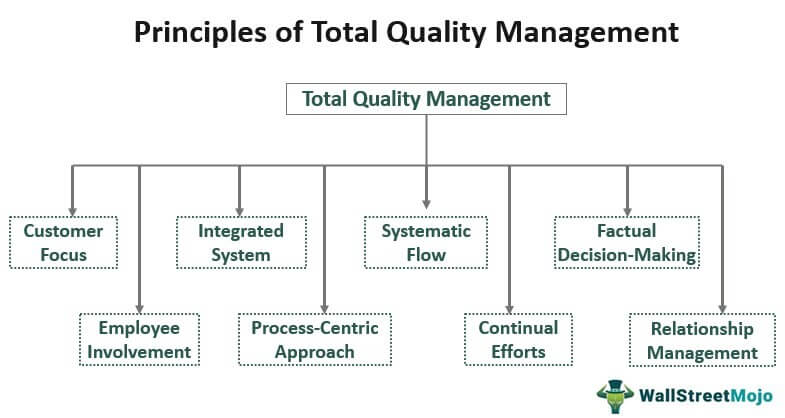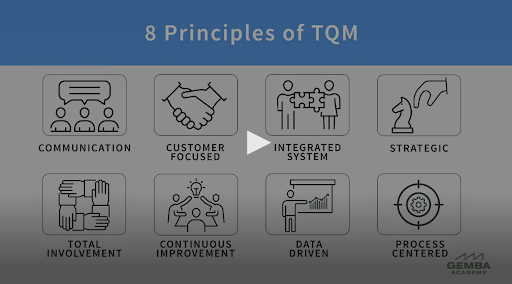Total Quality Management (TQM) is a business management strategy that involves all employees in a continuous process of improving the quality of products, services, and processes. It is a customer-driven approach that seeks to ensure that the needs and expectations of customers are met and exceeded at all times. TQM requires a strong commitment from top management in order to be successful.
Top management plays a crucial role in the implementation and sustainability of TQM in an organization. They are responsible for setting the overall direction and goals of the organization, as well as providing the necessary resources and support for TQM initiatives. Top management must also establish a culture of continuous improvement and create an environment that encourages and rewards innovation and teamwork.
One key way that top management can support TQM is by providing leadership and direction. This includes setting clear goals and expectations for TQM efforts, as well as communicating the importance of quality to all employees. Top management should also lead by example and actively participate in TQM activities, such as training sessions and problem-solving teams.
Another important role of top management in TQM is to provide resources and support. This includes providing funding for TQM initiatives, such as training programs and the purchase of new equipment or tools. It also involves ensuring that employees have the necessary skills and knowledge to perform their jobs effectively and efficiently. Top management should also make sure that there are adequate systems in place to collect and analyze data on quality, so that continuous improvement can be accurately measured and tracked.
In addition to providing leadership and resources, top management must also foster a culture of continuous improvement within the organization. This involves creating an open and inclusive environment where all employees are encouraged to share their ideas and suggestions for improvement. Top management should also recognize and reward employees who contribute to TQM efforts, as this can help to foster a sense of ownership and commitment among employees.
Overall, the involvement of top management is essential for the successful implementation and sustainability of TQM in any organization. By providing leadership, resources, and a culture of continuous improvement, top management can ensure that TQM efforts are successful and lead to long-term benefits for the organization and its customers.
TQMnotes1

The Source: Expert Market In TQM, there are three modes of communication, and they are: Downward Communication Downward communication is the most dominant mode of communication in every organization. It is helpful to get contributions from all quarters before concluding. In India, the execution of Liberalization, Privatization, and Globalization in 1991 July, considerably increases the huge growth of information technology in recent years which led tremendous transformations in the second largest mobile network role in the universe and also bring incredible changes in the lifestyles of the consumer. It provides a framework and set of principles that ensure a common-sense approach to the management of an organization to consistently satisfy customers and other stakeholders. Method: A systematic review of 22 academic articles has been conducted to formulate the recommendations. Process-led thinking is a sign of effective TQM.
Commitment of Top Management in TQM

It is primarily due to adequate supervision within their respective departments on implementing TQM. The Surat construction sector is facing many quality related issues, which all among factor some factor is more depend in quality assessment. Read a lot about total Quality management. On the other hand, both the "strongly disagree" and "disagree" choices had the lowest percentages, that ranged from slightly higher than 10% for the statement of "There are difficulties in learning and implementing TQM" to 20. With the iteration of meetings and the successful completion of several small projects, the momentum built quickly. Furthermore, there is a statistically significant impact of tangibles, reliability, responsiveness, assurance and empathy on patient satisfaction.
Influence of top management commitment towards the effective implementation of TQM in Iraqi oil companies

It is possible that not all elements will be applicable to an organization, as this is dependent on a number of factors including the size, locations and activities of the organization, the number of standards the organization is registered to and the maturity of its management system. According to the Likert scale interpretation, the mean value ranges between 3. Collect feedback of questionnaire, after their feedback a statistical analysis tool use and arrange all factor rank wise. This is a very important factor because if the managers are serious looking after employees and empowering the employees, the employees will be responsible for the quality of their work and they are accountable for the work and this how there would be improvement in the organization. Top management commitment and employees empowerment is one of the most important and vital principle in total quality management, because it is often assumes to have a strong relationship with customer satisfaction. There is one simple answer; when properly planned and implemented TQM will provide substantive financial benefits to your business and add to the bottom line.
Employee Involvement Makes TQM Work

Following the Likert scale interpretation, the mean value ranges between 3. Process Approach Taking a process approach is one of the ways of guaranteeing the success of the Total Quality Management approach. The current business environment requires that an organization remains sustainable in its operations and produces products that continuously meet customer needs and expectations. Additionally, to enhance the findings, the researcher followed a descriptive analysis by using a ranking that is based on the highest percentage values, along with the highest mean value for each potential TQM barrier. It improves the overall quality standards of your organization. Further assistance in meeting ISO 9001 As the examples above demonstrate, when it comes to an audit, you can never have too much information.
The Role of Leadership in Total Quality Management (TQM)

Accordingly, Excel and SPSS software programmes were mainly used for the data analysis procedures. The present study discusses and provides an overview of TQM implementation, its impact on different service industries and investigates the various critical success factors CSFs , processes of TQM implementation and its effects on different service industries performance and, finally, analyses the impact of TQM in various service industries. Previous research also established the importance of total quality management practices in building operational performance and customer satisfaction. Allocating adequate time and resources for quality management means that top management will contribute to overcoming or reducing the negative impacts of poor understanding and insufficient knowledge of TQM. Initiating and implementing a TQM program in most of the service system is a major task. Int J Qualit Methods 19:160940692090967 Open Access This article is licensed under a Creative Commons Attribution 4.









